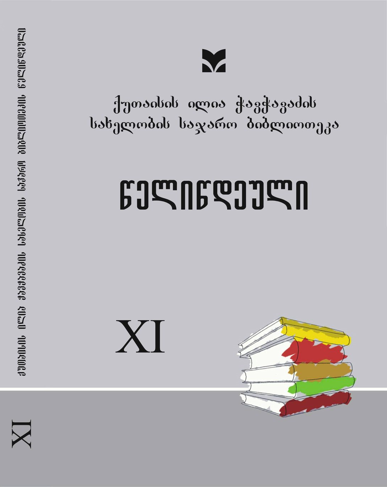დიალექტური ლექსიკისათვის (ბოლნისის მუნიციპალიტეტის სოფლების მონაცემთა მიხედვით)
საკვანძო სიტყვები:
ბოლნისი, ექსპედიცია, კუთხური ჭრილი, აზერბაიჯანული ლექსიკა, ყოველდღიურობა, მრწამსიანოტაცია
In the paper, we present the materials found during the ethnographic expedition of Akaki Tsereteli State University in 2019 (we lived in the village of Kazreti. During the expedition we visited the town of Bolnisi, villages: Kveshi, Ratevani, Akaurta, Kianeti, Kazreti, Rachisubani, Bachi).
Most of our respondents are children from different parts of Georgia (Imereti, Racha, Lechkhumi, Samegrelo, Svaneti) who settled in Bolnisi in 1945. Together with the Georgians there, they formed a whole, Georgian-speaking society.
The lexical units recorded by us well reflect the angular diversity gathered in one region, a small number of poems typical for the speech of the neighboring Azerbaijanis are also found:
External grandmother - midwife, sister-in-law/brother-in-law - guardian of girl and boy; Beekeeping/haymaking - stacking of sliced bread; Kumeloba - sweets made in the name of the deceased, a tradition similar to Korkotoba in Bolnisi; Flying - a place where nothing falls; Chopchia / Chopi (Turk.) - sticks; Dzvelebura - Easter kada; Jadagiroba (Persian: herd) - disorder; Shah (Shah, Persian - King) - Khoncha; Friend (Spar.) - brother-in-law; Dadvi - mother / crouc.
Part of the analytical lexical items is not confirmed in the published dictionaries, and part is found, but with a modified meaning. The presented material clearly shows the current life, beliefs, and characteristics of this part of Georgia.




